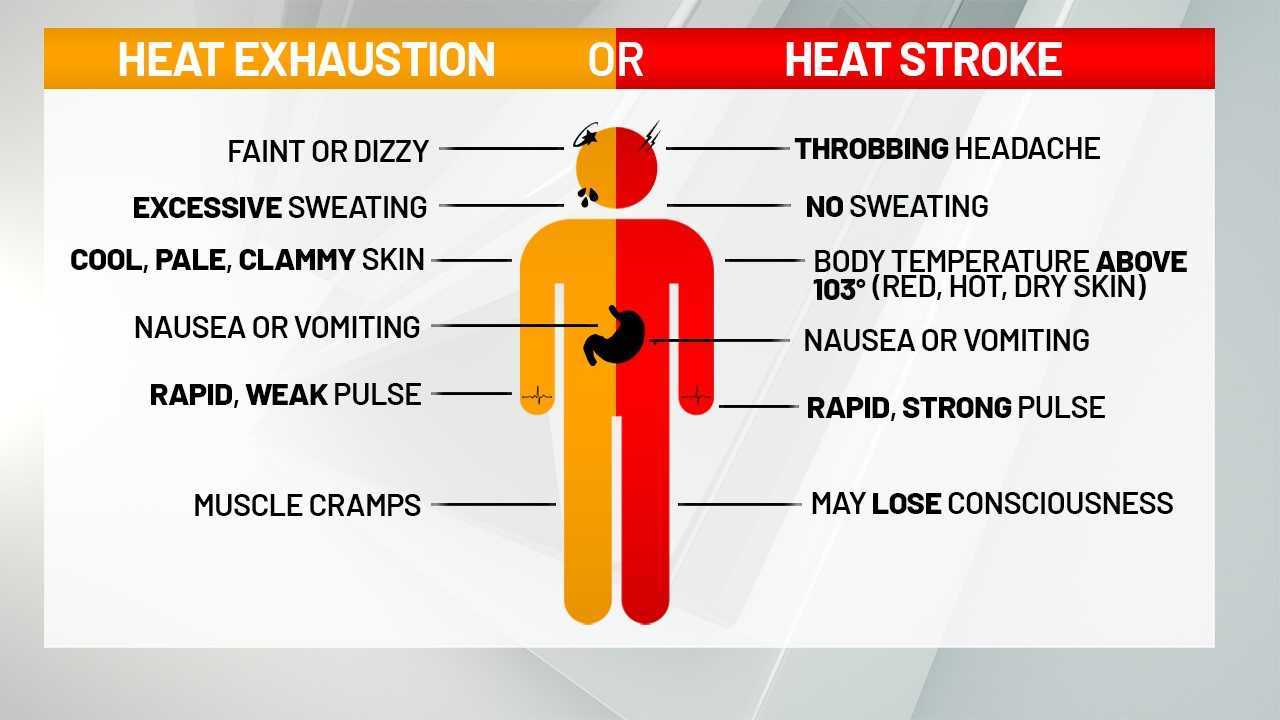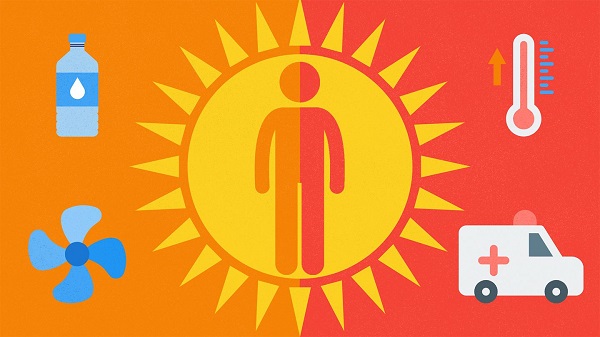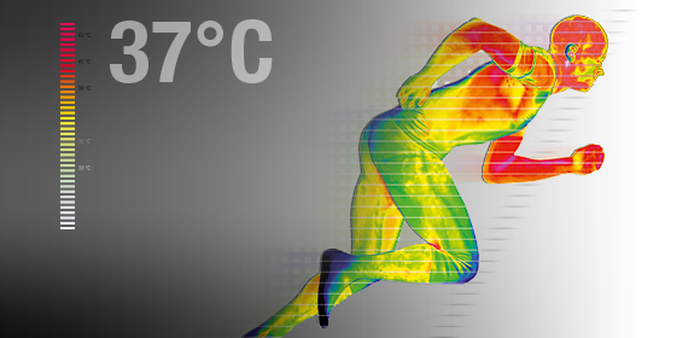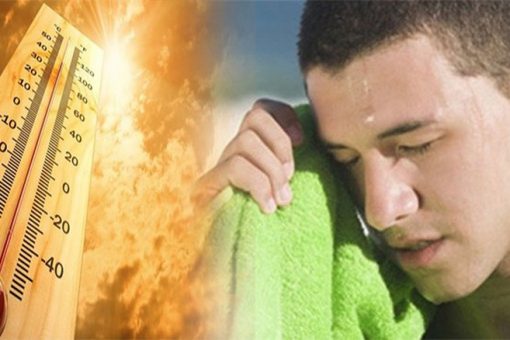They usually occur during a heatwave or in hot weather, but they can also occur during very strenuous physical exercise.
Heat exhaustion is when your body temperature becomes very high and you begin to lose water or salt from your body, causing the symptoms listed below, in addition to a general malaise.
Heatstroke occurs when the body can no longer cool itself and the body temperature becomes dangerously high (heatstroke occurs when this is caused by prolonged exposure to direct sunlight).
Heatstroke is less common but more serious. It can compromise the brain, heart, lungs, liver, and kidneys, and it can be fatal.
If heat exhaustion is not detected and treated early on, there is a risk that it could lead to heatstroke.
Symptoms of heat exhaustion or heat stroke
Heat exhaustion or heat stroke can develop quickly, over a few minutes, or gradually, over several hours or days.

Signs of heat exhaustion can include:
- Tiredness and weakness
- Feeling weak or dizzy
- Drop-in blood pressure
- Headache
- Muscle cramps
- Nausea and vomiting
- Excessive sweating
- Excessive thirst
- Increased heart rate
Need to urinate less often and have darker urine than normal
If heat exhaustion is not treated, symptoms of heatstroke can develop, including confusion, disorientation, seizures (fits), and loss of consciousness.
How to treat heat exhaustion
If you notice that you have someone have symptoms of heat exhaustion, you should:
Shelter in a cool place, such as an air-conditioned room or somewhere that is in the shade
Remove unnecessary clothing to expose as much of your skin as possible
Refresh your skin: use whatever you have available, such as a cool, damp sponge or flannel, cold compresses around the neck and armpits, or wrap in a cool, damp sheet
Fan your skin while the skin is wet, which helps the water evaporate and helps your skin cool
Get him to drink enough fluids; such as water, fruit juice, or a rehydration drink, such as a sports drink
Stay with the person until they feel better. Most people should begin to recover in about 30 minutes.
If the person is unconscious, you should follow the steps above and place the person in the recovery position until help arrives (see below). If they have a seizure, move nearby objects away to avoid injury.
When to seek medical help
Severe heat exhaustion or heat stroke requires hospital treatment.
You should call an ambulance if:
- The person does not respond to the above treatment within 30 minutes
- The person has severe symptoms, such as loss of consciousness, confusion, or seizures
- Continue with the treatment described above until the ambulance arrives.
If the person feels better after using the above measures but you are concerned about them, contact their doctor for advice.
Who is most at risk?
Anyone can develop heat exhaustion or heat stroke during a heatwave or while doing heavy exercise in hot weather. However, some people are at higher risk.
These include:
- People of the Third Age
- Babies and toddlers
- People with chronic illnesses, such as diabetes or heart or lung disease
- People who are already sick and dehydrated (for example, from gastroenteritis)
- People who exercise vigorously for long periods of time, such as soldiers, athletes, hikers, and people who work outdoors
You are more likely to have problems if you are dehydrated, there is little air or ventilation, or if you wear tight, restrictive clothing.
Certain medications can also increase your risk of developing heat exhaustion or heat stroke, including diuretics, antihistamines, beta-blockers, antipsychotics, and recreational drugs, such as amphetamines and ecstasy.
How to prevent heat exhaustion and heatstroke?
Heat exhaustion and heat stroke can often be prevented by taking reasonable precautions when the temperature is very high.

During the summer, check for heatwave warnings, so you know when there is a potential hazard.
Stay away from heat
Stay out of the sun between 11 a.m. and 3 p.m.
If you have to go outside in hot weather, go for the shade, put on sunscreen, and wear a hat and light scarf
Avoid extreme physical exertion
Wear light, loose cotton clothing
If you have just arrived in a warm climate country, be extra careful for at least the first few days, until you get used to the temperature.
Refresh yourself
Drink lots of cold drinks and avoid excess alcohol, caffeine, and hot drinks
Eat cold foods, particularly salads and fruits with a high water content
Take a cool shower or bath
Sprinkle water on your skin or clothing, or keep a damp cloth on the back of your neck
If you are not urinating as often or your urine is dark, it is a sign that you are becoming dehydrated and need to drink more.
Keep your surroundings cool
Keep windows and curtains that are exposed to the sun during the day closed, but open windows at night when the temperature has dropped
If possible, stay in a cooler room, especially for sleeping
Electric fans can provide some relief
Turn off non-essential lights and electrical equipment as they generate heat
Keep indoor plants and water bowls around the house as they can cool the air.
In the long run, it can be helpful to insulate the walls of your attic or loft as this will keep you warm when it’s cold and keep you cool when it’s hot. It can also be helpful to use light-colored reflective exterior paint in your home.
Be aware of others
Keep an eye on isolated people, the elderly, the sick, or children and make sure they stay cool
Make sure babies, children, or the elderly are not left alone in a parked car
Check on elderly or sick neighbors, relatives, or friends every day during the heatwave
Be vigilant and call a doctor or social services if someone is unwell or needs more help.




